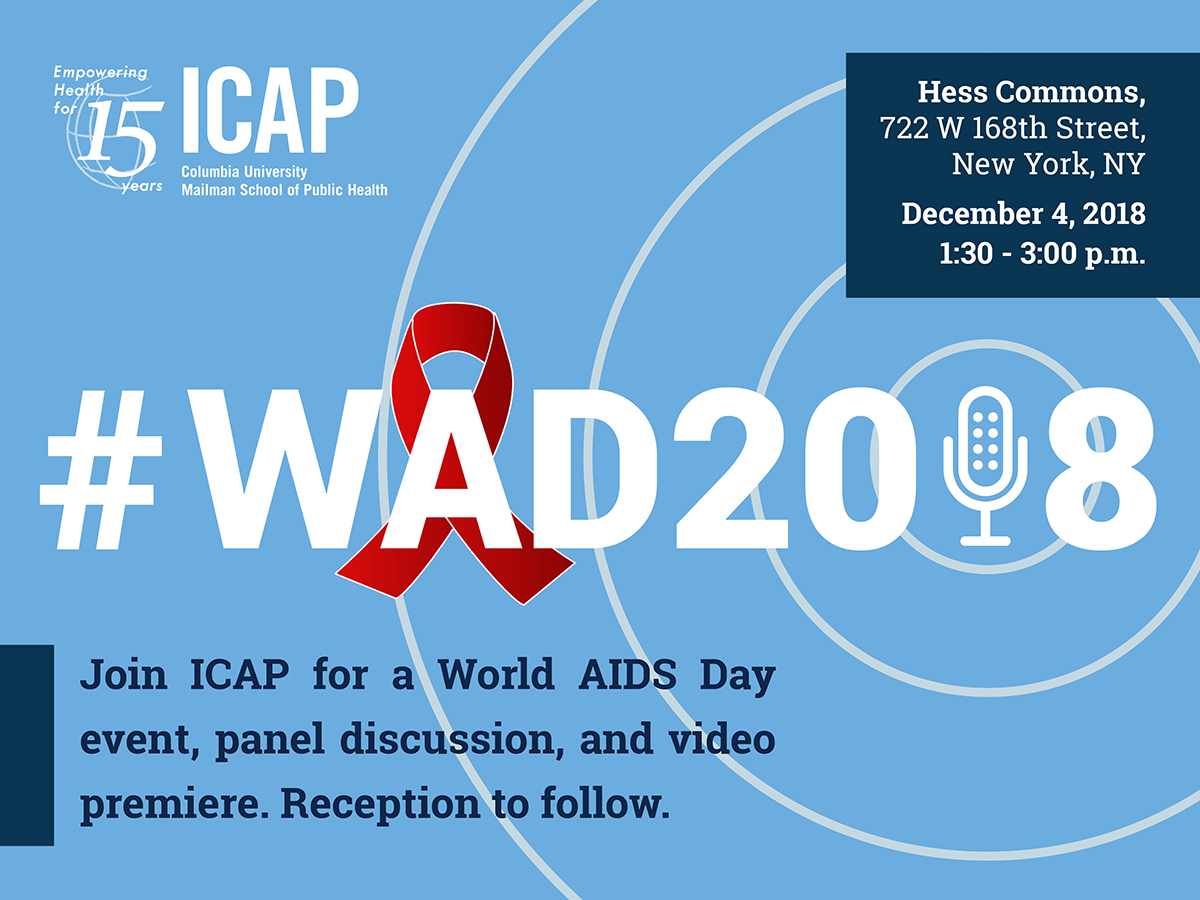World AIDS Day will be marking its 30th anniversary on December 1st 2018. This year’s theme will be “Know your status.”
Significant progress has been made in the AIDS response since 1988, and today three in four people living with HIV know their status. That said, 1 in 4 do not know their status and thus, there is still much work to be done in reaching people living with HIV who do not know their status, ensuring that they are linked to quality care and prevention services. HIV testing is the first step in the HIV Care Cascade and is essential for expanding treatment and ensuring that all people living with HIV can lead healthy and productive lives.
Tremendous advances have been made in HIV prevention and treatment since the discovery of the virus that causes AIDS and the early days of the epidemic. HIV is no longer a “death sentence” and is now seen as a manageable chronic illness with the possibility of living a normal lifespan. In addition, it is now known that it is highly unlikely – some would even say impossible – for a person living with HIV who is adherent to their treatment and maintains a suppressed HIV viral load to transmit the virus to sex partners and from mother-to-child during pregnancy and childbirth. This, along with the success of PrEP (pre-exposure prophylaxis), gives us all high optimism for the potential of ending the HIV epidemic with successful wide-scale implementation of HIV prevention and treatment.
We know however, that we still face many challenges to successfully scaling up these biomedical advances due to economic, social and health disparities, particularly for the most vulnerable populations. And unfortunately, stigma and discrimination still deters people from taking an HIV test, finding out their status, and accessing and adhering to effective antiretroviral therapy.
The HIV Center for Clinical and Behavioral Studies is dedicated to the development and implementation of innovative multidisciplinary research that will advance the knowledge and science of HIV prevention, treatment, and care, both domestically and globally. The Center provides the value-added infrastructure to ensure methodological and theoretical rigor, to identify and respond to new trends in the epidemic, to support critical partnerships across research and practice sectors, and to train new behavioral scientists.
We join our friends and colleagues across the globe this World AIDS Day in raising awareness about the importance of knowing one’s status and calling for the removal of all barriers to accessing HIV testing, as well as ongoing care and treatment.
Click HERE for a list of recent HIV Center publications.
-Robert Remien and HIV Center Leadership
In this video produced by the Columbia University Department of Psychiatry, Dr. Robert Remien, HIV Center Director, and Dr. Claude Ann Mellins, Co-Director, break down the state of HIV/AIDS in 2018, prevention and treatment advances, vulnerable populations, mental health, and optimism to help reduce sigma, raise hope, and improve physical and mental health outcomes.
Follow #RockTheRibbon and #WorldAIDSDay for more World AIDS Day media.
WORLD AIDS DAY EVENTS
Join Columbia University’s ICAP for “Knowledge is Power: World AIDS Day at 30” featuring presentations, panel discussions, and a video premiere around the theme of “Know your status” – the official theme for World AIDS Day 2018.
December 4, 2018 - 1:30-3:00PM
Hess Commons, Allan Rosenfield Bldg
722 W. 168th St., New York, NY 10032
Making it Happen, Getting it Done!
Join the third annual Ending the Epidemic (ETE) Summit hosted by the New York State Department of Health’s AIDS Institute.
December 4-5, 2018
Empire State Plaza Convention Center, Albany, NY.
Click HERE for more details and to register for the event.



